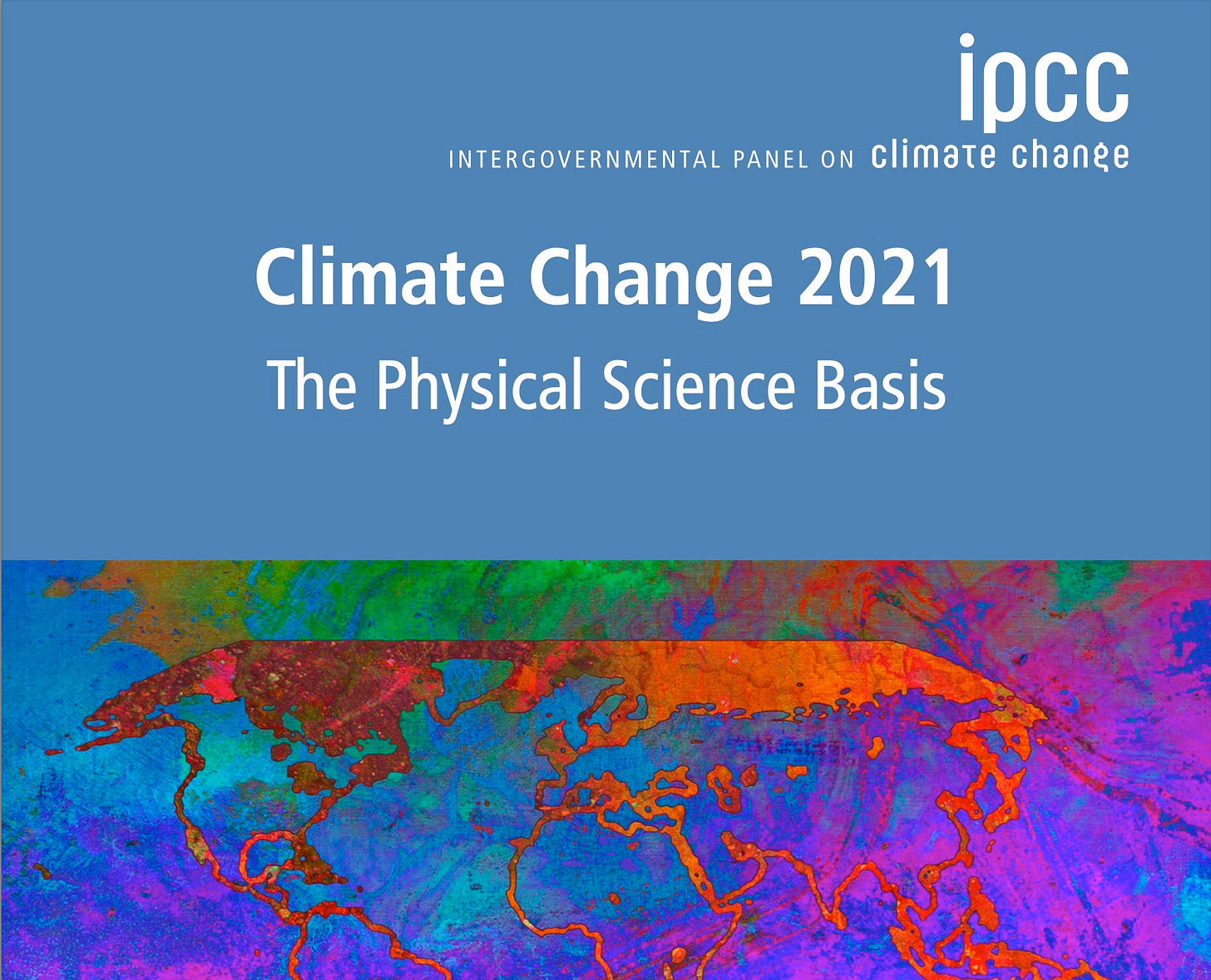How dire is the latest IPCC report?
It shows a pathway to halting or even reversing climate change, if we are willing to actually follow its advice.
I was asked to write a short essay on the significance of the latest report from the IPCC, and being a glass-is-half-full kind of a guy, want to stress that the report is clear: we could actually fix this if we really wanted to, it’s not too late.
Headlines around the world announce that the "World's 1.5°C goal slipping beyond reach without urgent action." They are referring to the bombshell report from the Intergovernmental Panel on Climate Change (IPCC), which starts with a bang: "It is unequivocal that human influence has warmed the atmosphere, ocean, and land." The report didn't tell us anything that we didn't know already, but it does stress that the 1.5-degree target is indeed slipping away and that if we don’t act, things will get a lot worse.
“Many changes in the climate system become larger in direct relation to increasing global warming. They include increases in the frequency and intensity of hot extremes, marine heatwaves, and heavy precipitation, agricultural and ecological droughts in some regions, and proportion of intense tropical cyclones, as well as reductions in Arctic sea ice, snow cover and permafrost.”
But the report is also clear: If we act, we can keep the temperature rise to below 1.5 degrees. So why is this number so important? It's really just a number in the 2015 Paris Agreement of 2015, which aimed to address the threat of climate change by "Holding the increase in the global average temperature to well below 2°C above pre-industrial levels and pursuing efforts to limit the temperature increase to 1.5°C above pre-industrial levels."
1.5 degrees isn't a cliff; it's not a "wall in the sky" like the sound barrier; It's a point on a continuum where things get less bad than they do at 2 degrees. Run the numbers on the carbon budget we need to stay under to avoid breaching 1.5 degrees, and you find that we have to cut carbon emissions, which mostly come from burning fossil fuels, to about half by 2030 and net-zero by 2050.
The IPCC report does not conclude, "OMG, we're gonna die." It is explicit in its FAQ that if we reduce emissions and remove CO2 from the air through natural and other means, climate change can be stabilized or even reversed.
"The CO2 concentration in the atmosphere results from a balance between human-caused CO2 release and the removal of CO2 by natural processes on land and in the ocean (natural 'carbon sinks'). If CO2 release exceeds removal by carbon sinks, the CO2 concentration in the atmosphere would increase; if CO2 release equals removal, the atmospheric CO2 concentration would stabilise; and if CO2 removal exceeds release, the CO2 concentration would decline. This applies in the same way to net CO2 emissions, that is, the sum of human-caused releases and deliberate removals."
It doesn't appear that the people in charge have any intention of doing this. When the International Energy Agency noted that if we were to have any chance of hitting the 2050 target, we had to stop all new oil and gas developments now, the Saudis just laughed, and the Russians were euphoric. Meanwhile, Joe Biden just approved 2500 permits to drill on public land and begged OPEC to increase production.
In Canada, Alberta Premier Jason Kenny says there is "no credible way" to eliminate humans' dependency on oil. The Federal Minister in charge of climate change says they have to finish building a pipeline that will double oil exports because it needs to sell the oil to pay for going zero-carbon," extracting full value for its resources and using that money to push forward in terms of reducing emissions," which is kind of like burning the village in order to save it.
That's why it's up to us as citizens and individuals. We have to protest; we have to vote the bums out, we have to get political. But we also have to stop buying what they are selling; we have to reduce our own carbon footprints.
An unpublished section of the IPCC report recently leaked to a Spanish group confirms this; According to The Guardian, "walking and cycling, cutting air travel and using energy-consuming appliances less can all contribute significantly to the reductions in emissions needed." Also, "A shift to diets with a higher share of plant-based protein in regions with excess consumption of calories and animal-source food can lead to substantial reductions in emissions."
It's a propitious time to launch a book called "Living the 1.5 Degree Lifestyle," because that is pretty much what the book prescribes, the changes that we all have to make in our lives to keep the world from warming more than 1.5 degrees.
The IPCC report is clear that it is not too late if nations and individuals take action. But we have to act collectively and individually; we are each responsible for our emissions, either because of the politicians we elect or the way we choose to live.

